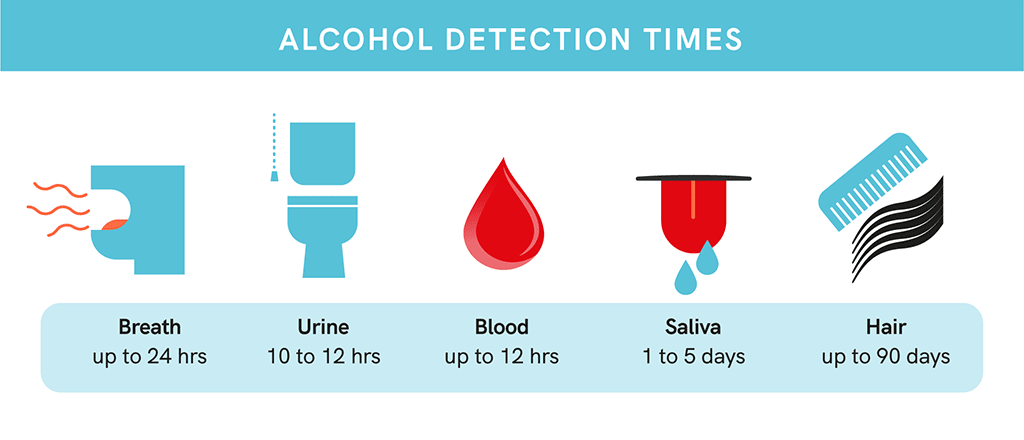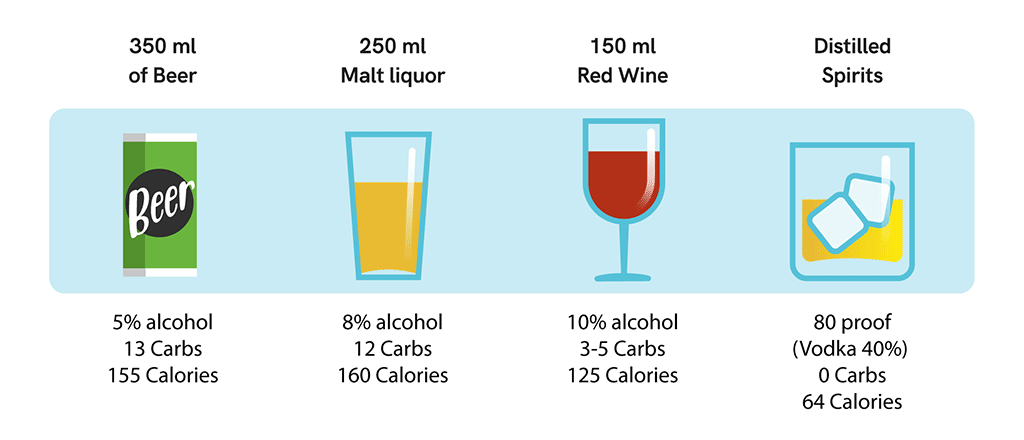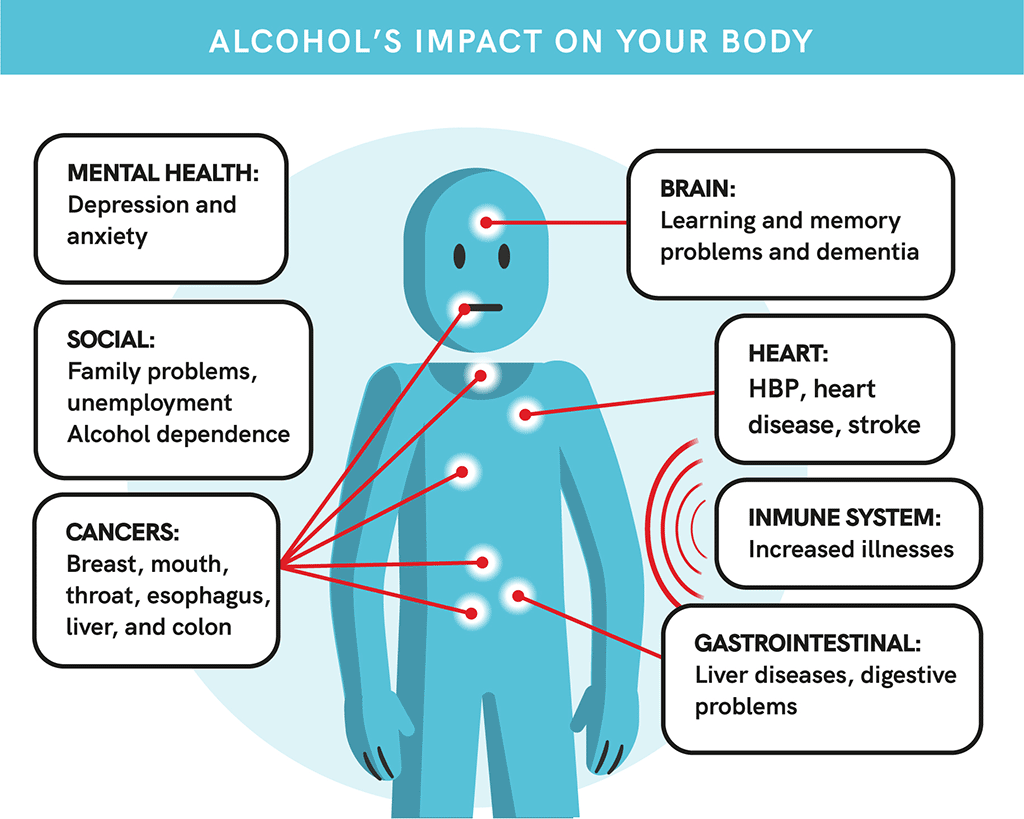Alcohol and Your Health
For many, alcohol is forbidden and should be avoided. For those that choose to drink alcohol, you should drink in moderation, along with exercising and keeping a healthy diet. You should understand that studies have shown physical and mental health risks associated with alcohol consumption.
For those that still choose to drink, alcohol should be consumed in moderation, which means up to 1 drink per day for women and up to 2 drinks per day for men. The human body prioritizes digesting alcohol before anything else that is eaten or drunk.

Some people should not drink at all, like pregnant women and people with certain health conditions. Talk with your doctor about the benefits and risks of consuming alcohol.
Metabolizing Alcohol
Unlike proteins, carbohydrates and fats, your body does not have a way to store alcohol, so it has to move to the front of the metabolizing line.

While the liver breaks down the alcohol, it may not be able to release glucose normally (alcohol inhibits gluconeogenesis). If the glucose released from the liver is compromised, the insulin may continue to push the blood glucose levels lower and lower. That’s why it is so common to have hypoglycemia and cravings a couple of hours after the consumption of alcohol.
A single drink can take two or more hours to be processed by the liver.
What counts as one drink?
Examples of one drink include:
- Beer 355 milliliters (contains roughly 13 grams of carbohydrate per portion and 150 calories)
- Wine: 145 milliliters (most wines contain 3-5 grams of carbohydrates per portion, and 125 calories)
- Distilled spirits (80 proof): 44 milliliters (doesn’t contain any carbohydrates, except for whatever it’s mixed with. Contains 100 calories).

Long-Term Health Risks From Alcohol Consumption
Over time, excessive alcohol use can lead to the development of chronic diseases and other serious problems including:

Leave a Reply